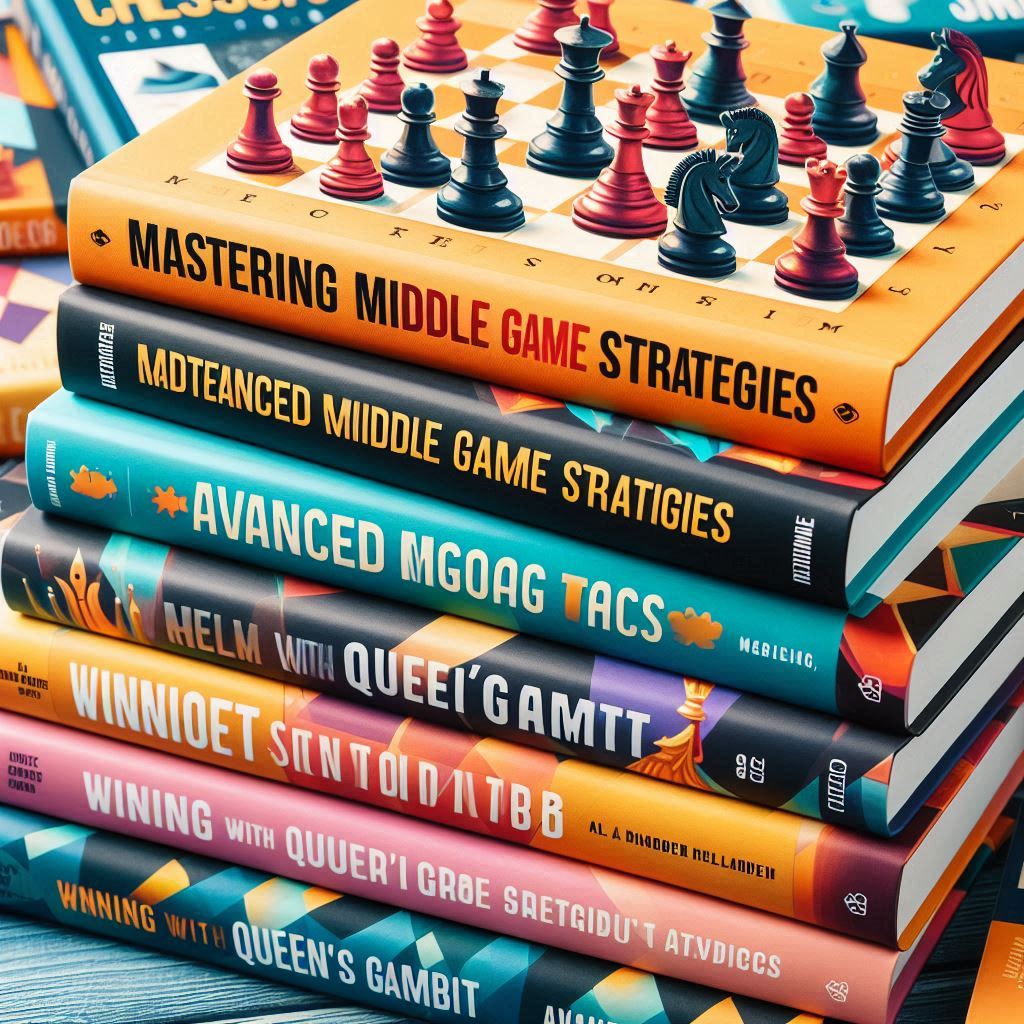Introduction
As an intermediate chess player, you’ve moved beyond the basics and are ready to delve deeper into the intricacies of the game. Reading the right chess books can significantly enhance your understanding of strategy, tactics, and endgame techniques. This guide highlights the best chess books for intermediate players, offering insights into each book’s focus and why they are essential for your chess library.
“My System” by Aron Nimzowitsch
Fundamentals of Positional Play: Considered one of the most influential chess books ever written, “My System” introduces intermediate players to the principles of positional play. Nimzowitsch covers essential topics such as pawn structure, open files, and the control of the center. His clear explanations and practical examples make complex concepts accessible.
“How to Reassess Your Chess” by Jeremy Silman
Improving Strategic Thinking: Jeremy Silman’s classic is a must-read for intermediate players aiming to enhance their strategic thinking. The book helps readers understand imbalances in chess positions and how to capitalize on them. Silman’s instructional style and practical advice guide players toward a deeper understanding of strategy.
“Silman’s Complete Endgame Course” by Jeremy Silman
Endgame Techniques for All Levels: This comprehensive guide to endgames is structured to provide the right information at the right time, depending on the reader’s skill level. For intermediate players, Silman covers key endgame principles and techniques necessary for converting advantages into victories.
“The Art of Attack in Chess” by Vladimir Vukovic
Mastering Attacking Play: Vukovic’s book is a definitive guide to attacking chess. It teaches intermediate players how to recognize attacking opportunities and execute effective attacks. The book covers various attacking themes, including the classic bishop sacrifice, piece coordination, and king hunts.
“Chess Tactics for Champions” by Susan Polgar
Enhancing Tactical Skills: Written by grandmaster Susan Polgar, this book is an excellent resource for improving tactical skills. It includes hundreds of problems and solutions, along with tips and strategies for recognizing tactical motifs. Intermediate players will benefit from the practical exercises and Polgar’s insights.
“The Amateur’s Mind” by Jeremy Silman
Understanding and Correcting Common Mistakes: Silman’s book addresses the common mistakes made by amateur players and offers clear guidance on how to correct them. Through annotated games and instructional commentary, Silman helps intermediate players identify and avoid typical errors in their play.
“Zurich International Chess Tournament 1953” by David Bronstein
Insights from a Historic Tournament: This book provides a detailed account of one of the most famous chess tournaments in history. Bronstein’s annotations and insights offer intermediate players a chance to learn from the games of top grandmasters, enhancing their understanding of high-level play and strategy.
“Logical Chess: Move by Move” by Irving Chernev
Detailed Game Analysis: Chernev’s book is ideal for intermediate players looking to understand the reasoning behind every move in a chess game. By providing move-by-move commentary on a series of classic games, Chernev helps readers grasp the logic and strategy employed by strong players.
“Think Like a Grandmaster” by Alexander Kotov
Developing Calculation Skills: Kotov’s book focuses on the thought processes and calculation techniques used by grandmasters. It introduces the concept of the “tree of analysis” and provides practical advice on how to structure and improve your thinking during a game. This is essential reading for those looking to sharpen their calculation skills.
“Modern Chess Openings” by Nick De Firmian
Comprehensive Opening Guide: Known as the “MCO,” this book is a comprehensive guide to chess openings. It provides detailed coverage of a wide range of openings, making it a valuable reference for intermediate players. Understanding opening theory is crucial for gaining a solid foundation and building successful game plans.
FAQs
What makes a chess book suitable for intermediate players?
A good chess book for intermediate players covers advanced concepts with clear explanations, offers practical examples, and addresses common mistakes. It should bridge the gap between basic knowledge and more complex strategies.
How often should I study chess books?
Regular study is key to improvement. Aim to incorporate reading and studying chess books into your weekly routine, balancing it with practical play and other training methods.
Can I benefit from reading grandmaster games?
Absolutely. Analyzing grandmaster games helps you understand advanced strategies, tactics, and the decision-making processes of top players. It’s an excellent way to elevate your own play.
Should I focus on one book at a time or multiple books?
It’s generally more effective to focus on one book at a time to fully absorb the material. However, you can supplement your main study book with tactical puzzle books or opening guides for variety.
How can I apply what I learn from chess books?
Practice the concepts and strategies you learn by playing games, solving puzzles, and analyzing your own games. Applying theoretical knowledge in practical situations helps reinforce your learning.
Conclusion
Investing time in reading and studying chess books is one of the most effective ways to improve your game. The books listed above offer a wealth of knowledge, covering various aspects of chess that are crucial for intermediate players. Whether you’re looking to enhance your strategic thinking, master endgames, or improve your tactical skills, these books provide the guidance and insights you need to elevate your chess to the next level. Dive into these classics, and watch your understanding and performance on the chessboard grow.



